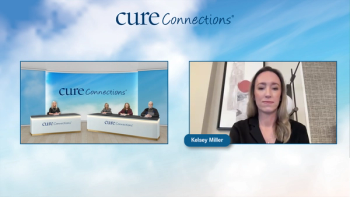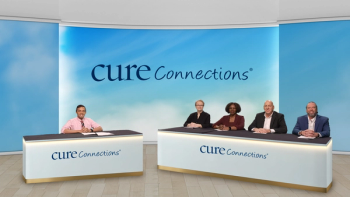
Managing Adverse Events in RCC
Kidney cancer expert, Dr Thomas E. Hutson, shares insight on managing adverse events resulting from combination therapy in RCC.
Episodes in this series

Thomas E. Hutson, DO, PharmD: One of the concerns we have when we combine therapies together is side effects. We know that the immune therapies have particular side effects that are related to turning on the immune system. When we turn on the immune system, we can cause what’s called inflammation—the medical suffix is -itis—and you can develop inflammation in any area of the body. The reason for this developing is because we’ve made the immune system extra sensitive. Things like allergies, arthritis pains—which normally didn’t cause many problems for a patient—can now cause problems because you’re having a more heightened immune response.
We have to be concerned there for the side effects of combining two together. When we’ve looked at that we can say that the combination of the 2 immunotherapies does produce more side effects than one immunotherapy alone. But the benefits of the ability to produce shrinkage of tumor—in the case in kidney cancer, of around 10% of patients being able to have their tumor completely go away when we combine the two immunotherapies, and also the durability of having the responses last—makes the combination worth it when it comes to side effects. The side effects of turning on the immune system would be explained by your doctor in great details.
The most general way to think about the side effects is that you’re turning on your immune system. Because of that, your immune system can be extra sensitive and cause inflammation in areas of your body that normally wouldn’t be. It can infect organs, and it can cause inflammation of things like the lungs, the kidneys, the colon—really, anywhere—so we need to monitor closely for any signs of that.
That may seem scary to you as a patient, but we do have an effective antidote that will allow us to treat if that happens. If we do find that the immune system is turned on too much, then what we would do is hold the therapy and then give steroids. Steroids will suppress that immune response, and we’re able to therefore to quiet down the immune system. The expectation is that the side effects would go away completely. If we’re able to do that—it makes sense; a patient can sometimes go back on the therapy—there’s a 60% likelihood most of the time that they won’t get that same side effect back. That makes the immunotherapies a therapy that’ a very powerful therapy, that we can generally administer safely, and because of that it’s become one of the most commonly used initial therapies for patients with metastatic kidney cancer.
This transcript has been edited for clarity.


